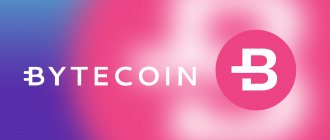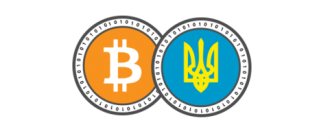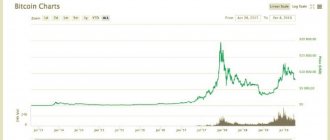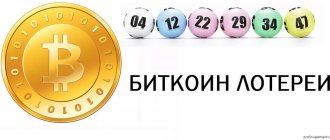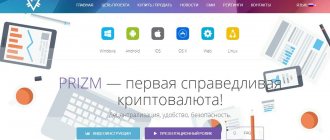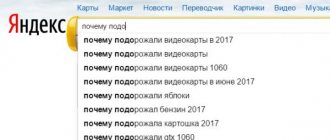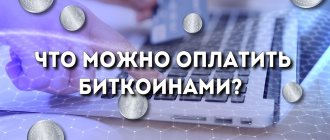The document defined the concept of “digital currency” and prohibited it from paying and advertising such an opportunity. We tell you how this will affect the development of the blockchain industry in the country
On July 22, the State Duma adopted the law “On Digital Financial Assets” in the third reading. The document defines cryptocurrency, but prohibits its use in Russia to pay for goods and services. Advertising of payment methods using digital money is also prohibited. The new rules will come into force on January 1, 2021.
According to the law, digital currency is “a set of electronic data (digital code or designation) contained in an information system that is offered and (or) can be accepted as a means of payment that is not a monetary unit of the Russian Federation, a monetary unit of a foreign state and (or ) an international currency or unit of account, and/or as an investment and in respect of which there is no person obligated to each holder of such electronic data.”
What you need to know about the new law
Chairman of the State Duma Committee on the Financial Market Anatoly Aksakov explained that cryptocurrency was defined as a digital code that is used as a means of payment and a means of savings, as an investment. But in Russia it is prohibited to use it to pay for goods and services.
Criminal and administrative liability was also removed from the document. According to senior tax lawyer at Bryan Cave Leighton Paiser (Russia) LLP, teacher at Moscow Digital School Dmitry Kirillov, this does not mean that such rules will not be included in a separate bill. This is hinted at by the conclusion of the Legal Department of the State Duma.
“Compared to the May version, the bill has been significantly revised. The rules on the regulation of digital currency (cryptocurrency in the usual sense) have been transferred from a separate law to the law on DFA,” the expert explained.
The concept of digital currency is enshrined in clause 3 of Art. 1 of the bill “On CFA”. It is made universal and allows it to be applied not only to crypto-assets issued in Russian information systems under the supervision of the Bank of Russia, but also, for example, to Bitcoin.
“This is a positive change, since initially the Civil Code of the Russian Federation, the law on crowdfunding and the bill “On CFA” included the Russian origin of cryptoassets, which took the entire array of global cryptoassets beyond the legal framework and made the prospects for the Russian cryptomarket very illusory,” added Kirillov.
Within the meaning of the bill, digital currency is recognized as property, but not as digital rights, which may require changes to the Civil Code. The circulation of cryptocurrencies in the new edition is regulated by Art. 14 of the bill.
“The most odious provisions that allow receiving and transferring digital currency only by inheritance, in bankruptcy or in enforcement proceedings have been excluded from the text. At the same time, the ban on Russian residents accepting digital currency as payment for goods, works and services, as well as disseminating information about the possibility of making payments in digital currency, has been maintained,” the lawyer emphasized.
There remains the need to declare (now called informing) ownership of digital currency and transactions with it. This is a condition for judicial protection of such operations.
According to the new version of the bill “On Digital Financial Assets”, cryptocurrency in Russia can be bought, issued, sold, and made other transactions, but it cannot be paid to Russian residents. There is a certain contradiction in this, since the very concept of cryptocurrency in the same document implies its use as a means of payment.
The bill makes reference to individual laws that will regulate mining, organization of the issuance and circulation of digital currency in Russia. It is possible that these laws will contain other restrictions on such operations, Kirillov warned.
“In general, the new version of the bill no longer looks as draconian as the May one, but still personifies the Central Bank’s fight against money surrogates,” the specialist concluded.
Problems of the Law “On Digital Financial Assets”
On May 21, 2020, a number of bills relating to the circulation and issuance of cryptocurrencies and providing for administrative and criminal liability for violations of their use were sent to the Ministry of Economic Development. At first, the documents were criticized in the community, then a negative position on them was expressed in several ministries at once, in particular, in the Ministry of Justice, the Ministry of Economy and the Ministry of Telecom and Mass Communications.
The Russian Association of Crypto Industry, Artificial Intelligence and Blockchain Technologies (RACIB) warned that the approval of documents in the May edition would cause “irreparable damage to Russia.” After criticism, the bills were considered unsatisfactory and sent for revision.
The head of the legal committee of RACIB, member of the Commission on Legal Support of the Digital Economy of the Moscow Branch of the Russian Bar Association, Elena Gultyaeva, recalled that the law “On Digital Financial Assets” has been under consideration in the State Duma for more than two years. However, the version submitted for consideration in the second reading does not provide for regulation of the entire range of relations regarding the creation and circulation of digital assets.
The bill still does not provide for the possibility of remote identification of participants in transactions, which will not provide a full-fledged opportunity to attract investments to the market. However, the bill adopted in the second reading may become one of the tools that will ultimately ensure the full operation of the crypto industry in Russia, the expert believes. She added that for this to happen, the legislation should not contain provisions that would prevent the legal circulation of any digital assets, including cryptocurrency.
“In this sense, we positively evaluate the inclusion of the concept of digital currency in the bill. What is needed now is a balanced approach to the formation of a law on digital currency so that the adopted norms ensure a balance of interests of the state and business and provide legal guarantees for participants to work with innovative tools,” concluded Gultyaeva.
“The digital currency law is key for the industry.”
The date for the entry into force of the law “On Digital Currency” is determined by the beginning of next year, January 1, 2021. Currently, the government is actively working to agree on positions regarding the document “On Digital Currency”. By September, lawmakers hope to arrive at a text that is most ready for public debate. The government has diametrically opposed positions regarding the legalization or prohibition of a new type of asset.
Development Director of the EXMO exchange Maria Stankevich emphasized that the law “On Digital Currency”, which is still under discussion, is key for the industry. It was to this document that amendments were sent directly to the Ministry of Economic Development and the State Duma. According to Stankevich, the law “On CFA” is more of a glossary of concepts, from which it will be possible to build on in future lawmaking.
“We hope that the new document will be more complete and will contain a large number of updates that were previously sent as amendments. But we believe that it is too early to rejoice, because, as we have already mentioned, the current law is nothing more than a glossary. There may be surprises ahead of us,” Stankevich warned.
President Vladimir Putin said in mid-July 2020 that the Russian authorities should take more active measures to digitalize the economy and high-tech industries in order to “expand development horizons” and “create a new structure of our economy.” He called on the government to act more decisively and proactively to make the country globally competitive.
This year, the Russian authorities have developed a plan to support high-tech companies. The goal is to stimulate the export of Russian software and bring Russian startups from other jurisdictions back to the country. With the introduction of regulation of the digital money market, blockchain projects will also be able to count on preferences. In Russia, in addition to programs for digital money, hardware is also being developed, for example, devices for storing DFA.
“The state is shooting itself in the foot.” Bitcoin vs. Wealth Tax
—The Russian authorities will allocate ₽20 billion to IT companies. How this will help the blockchain industry
— The Russian court refused to recognize 55 million rubles of damage in Bitcoin
You will find more news about cryptocurrencies in our telegram channel RBC-Crypto.
Federal Law (draft) No. 419059-7 “On digital financial assets”
Article 1. Subject of regulation and scope of this Federal Law
1. This Federal Law regulates the relations arising during the creation, issue, storage and circulation of digital financial assets, as well as the exercise of rights and performance of obligations under smart contracts.
Article 2. Basic concepts used in this Federal Law
For the purposes of this Federal Law, the following basic concepts are used:
- Digital financial asset is property in electronic form created using cryptographic means. Ownership of this property is verified by making digital entries in the digital transaction register. Digital financial assets include cryptocurrency and token. Digital financial assets are not legal tender on the territory of the Russian Federation.
- Digital transaction is an action or sequence of actions aimed at creating, issuing, and circulating digital financial assets.
- Digital record – information about digital financial assets recorded in the register of digital transactions.
- The register of digital transactions is a systematized database of digital records formed at a certain point in time.
- A distributed registry of digital transactions is a systematized database of digital transactions formed at a certain point in time, which are stored, simultaneously created and updated on all media for all registry participants based on specified algorithms that ensure its identity for all registry users.
- Participants in the register of digital transactions are persons carrying out digital transactions in accordance with the rules for maintaining the register of digital transactions.
- Validator is a legal or natural person who is a participant in the register of digital transactions and carries out activities to validate digital entries in the register of digital transactions in accordance with the rules for maintaining the register of digital transactions.
- Digital financial asset exchange operator is a legal entity that carries out transactions to exchange tokens for rubles or foreign currency. Operators for the exchange of digital financial assets can only be legal entities that are created in accordance with the legislation of the Russian Federation and carry out the types of activities specified in Articles 3,4,5 of the Federal Law of April 22, 1996 No. 39-FZ “On the Securities Market” (hereinafter referred to as the Federal Law “On the Securities Market”), or legal entities that are organizers of trade in accordance with the Federal Law of November 21, 2011 No. 325-FZ “On Organized Trading” (hereinafter referred to as the Federal Law “On Organized Trading” ).
- Validation of a digital record is a legally significant action to confirm the validity of digital records in the register of digital transactions, carried out in the manner established by the rules for maintaining the register of digital transactions.
- Mining is an activity aimed at creating cryptocurrency and/or validating it in order to receive a reward in the form of cryptocurrency. Mining is recognized as a business activity when the person who carries it out exceeds the energy consumption limits established by the Government of the Russian Federation for three months in a row.
- Cryptocurrency is a type of digital financial asset created and recorded in a distributed register of digital transactions by participants of this register in accordance with the rules for maintaining a register of digital transactions.
- A token is a type of digital financial asset that is issued by a legal entity or individual entrepreneur (hereinafter referred to as the issuer) in order to attract financing and is recorded in the register of digital transactions.
- A smart contract is an agreement in electronic form, the execution of rights and obligations under which is carried out by automatically performing digital transactions in a distributed register of digital transactions in the sequence strictly defined by such an agreement and upon the occurrence of circumstances specified by it.
- A digital wallet is a software and hardware tool that allows you to store information about digital records. A digital wallet may provide access to a ledger of digital transactions.
Article 3. Features of the issuance of tokens
1. For the purposes of this Federal Law, the issue of tokens is understood as a sequence of actions aimed at alienating the issuer of tokens to their acquirers. A token of the same type can only have one issuer. The maximum amount for which persons who are not qualified investors in accordance with the Federal Law “On the Securities Market” can purchase tokens within one issue is established by the Bank of Russia.
2. The procedure for issuing tokens consists of the following stages:
- publication by the issuer of tokens on the information and telecommunications network “Internet” of an investment memorandum, an offer containing the conditions for the acquisition of tokens issued by it (hereinafter referred to as the public offer for the issue of tokens), as well as other documents determined by the issuer necessary for the issue of tokens;
- conclusion of agreements, including in the form of a smart contract, aimed at the alienation and payment of tokens by their acquirers.
3. The public offer for the issue of tokens must contain:
information about the issuer and its beneficial owner (if any): full name of the issuer of tokens and its beneficial owner (if any), location and address of the permanent executive body of the issuer and its beneficial owner (if any), the official website of the issuer in the information and telecommunications Internet networks;
information about the person carrying out depository activities, to whom copies of the public offer for the issuance of tokens and the investment memorandum are transferred for storage (if the issuer independently takes into account the rights of token owners);
the purchase price of the issued token or the procedure for determining it;
the start date of concluding agreements on the purchase of issued tokens;
the procedure for sending acceptance of a public offer to issue tokens, including the deadline for sending acceptance, as well as the procedure for paying for purchased tokens;
information about the maximum amount for which tokens can be purchased by persons who are not qualified investors in accordance with the Federal Law “On the Securities Market”;
rules for maintaining a register of digital transactions, including, among other things, the procedure for validating digital transactions;
information on the procedure for opening digital wallets used to store information about purchased tokens and the procedure for accessing the register of digital transactions;
other information determined by the issuer.
A public offer for the issue of tokens must be signed with an enhanced qualified electronic signature of a person performing the functions of the sole executive body of a legal entity - the issuer or an individual entrepreneur - the issuer.
If the issuer independently records the rights of token owners, then the issuer is obliged to transfer for storage a copy of the public offer on the issuance of tokens and the investment memorandum to the person carrying out depository activities.
The concept of “beneficial owner” is used in this Federal Law in the meaning defined by the Federal Law of August 7, 2001 No. 115-FZ “On combating the legalization (laundering) of proceeds from crime and the financing of terrorism” (hereinafter referred to as the Federal Law “On combating the legalization (laundering) of proceeds from crime and the financing of terrorism."
4. The investment memorandum must contain:
- information about the issuer: full and abbreviated name, purposes of creation (if any), main types of activity;
- information about the issuer's shareholders (participants), as well as about the structure and competence of the issuer's management bodies;
- main purposes of issuing tokens and directions for using funds received as a result of issuing tokens. If the issuance of tokens is carried out for the purpose of financing a specific project, a description of such a project is provided, including a business plan (if any) and the timing of its implementation, as well as information about the risks associated with the implementation of the project;
- terms of the offer to attract investments;
- the rights granted to the token owner and the procedure for exercising such rights;
- other information that the issuer deems necessary to indicate in the investment memorandum.
The investment memorandum must be signed by a person performing the functions of the sole executive body of a legal entity - the issuer or an individual entrepreneur - the issuer, thereby confirming the accuracy and completeness of all information contained in the investment memorandum.
5. The investment memorandum, rules for maintaining a register of digital transactions, as well as other documents, the publication of which in accordance with this Federal Law is carried out simultaneously with the public offer for the issue of tokens, must be published no later than 3 business days before the one specified in the offer for the issue tokens, the date of commencement of the conclusion of contracts aimed at the alienation by the issuer of tokens to their owners.
Before the publication of the offer for the release of tokens, the issued tokens cannot be offered to potential purchasers in any form and by any means using advertising.
Article 4. Peculiarities of circulation of digital financial assets
Owners of digital financial assets have the right to make transactions to exchange tokens for rubles or foreign currency only through a digital financial asset exchange operator. The list of other transactions for the exchange of digital financial assets that can be carried out on the territory of the Russian Federation, as well as the procedure and conditions for carrying out such transactions, are established by the Bank of Russia in agreement with the Government of the Russian Federation.
Digital records containing information about such transactions must be stored in digital wallets opened to the parties to the transaction by the digital financial asset exchange operator. Transactions to exchange tokens for rubles, foreign currency, concluded with the involvement of a digital financial assets exchange operator, who is a trade organizer in accordance with the Federal Law “On Organized Trading,” must be carried out in accordance with the Rules for organized trading in digital financial assets registered with the Central Bank of the Russian Federation. Federation.
A digital wallet is opened by the digital financial asset exchange operator only after undergoing identification procedures for its owner in accordance with the Federal Law “On Combating the Legalization (Laundering) of Proceeds from Crime and the Financing of Terrorism.”
The procedure for opening, storing information about digital records, maintaining, closing a digital wallet, as well as requirements for the protection of digital wallets are established by the Central Bank of the Russian Federation.
Article 5. The procedure for the entry into force of this Federal Law
This Federal Law comes into force after 90 days from the date of its official publication.
President of Russian Federation
EXPLANATORY NOTE to the draft federal law “On digital financial assets”
The draft federal law “On Digital Financial Assets” (hereinafter referred to as the bill) was developed in accordance with the instructions of the President of the Russian Federation V.V. Putin dated October 21, 2017 No. Pr-2132 following a meeting on the use of digital technologies in the financial sector on October 10, 2020.
The goals of the bill are to legislatively consolidate in the Russian legal field the definitions of the currently most widely used financial assets created and/or issued using digital financial technologies, to which the bill includes a distributed registry of digital transactions, as well as to create legal conditions for the attraction by Russian legal entities and individual entrepreneurs invest by issuing tokens, which are one of the types of digital financial assets.
To achieve this goal, the bill introduces definitions of digital financial assets, which include cryptocurrency and tokens, and also legislates a new type of agreement concluded in electronic form - a smart contract, the fulfillment of obligations under which is carried out using digital financial technologies. These definitions establish that both a cryptocurrency and a token are property, defining key differences between a cryptocurrency and a token based on the attribute of a single issuer (token) and multiple issuers/miners (cryptocurrency), as well as the purpose of the issue. At the same time, the bill directly establishes that digital financial assets are not legal means of payment on the territory of the Russian Federation.
In addition, the bill defines concepts such as digital recording and digital transaction, and also establishes the legal basis for the implementation of new types of activities, which include activities aimed at creating cryptocurrency or receiving remuneration in the form of cryptocurrency (mining), as well as activities aimed at confirmation of the validity of digital records in a distributed registry of digital transactions (validation).
The bill provides for the possibility of making transactions to exchange tokens for rubles or foreign currency. At the same time, the possibility of exchanging other digital financial assets, as well as the procedure and conditions for carrying out such transactions will be determined by the Bank of Russia in agreement with the Government of the Russian Federation.
In order to reduce the risks of owners of digital financial assets when carrying out the above transactions and ensure compliance with the requirements of legislation on combating money laundering and terrorist financing, all transactions must be carried out through digital financial asset exchange operators, which can only be legal entities that are created in in accordance with the legislation of the Russian Federation and carrying out the types of activities specified in Articles 3, 4 and 5 of the Federal Law of April 22, 1996 No. 39-FZ “On the Securities Market”, or legal entities that are organizers of trade in accordance with the Federal Law dated November 21, 2011 No. 325-FZ “On organized auctions”.
In order to create conditions for storing and conducting transactions with digital financial assets, the bill introduces the concept of a digital wallet.
A special place in the bill is occupied by an article that establishes the legal basis for the procedure for issuing tokens in the Russian Federation, which is currently better known as ICO (Initial Token Offering).
This article of the bill establishes the sequence of actions necessary to carry out the procedure for issuing tokens, determines that the issuance of tokens is carried out on the basis of a public offer, the composition of information of which is determined by the bill, and also establishes the need to disclose additional information by the person issuing tokens.
In order to ensure the protection of unqualified investors, the bill provides for granting the Bank of Russia the authority to establish a limit on the amount of acquisition of tokens by persons who are not qualified investors.
The bill complies with the provisions of the Treaty on the Eurasian Economic Union, as well as the provisions of other international treaties of the Russian Federation.
The decisions proposed by the bill will not have an impact on achieving the goals of state programs of the Russian Federation.
